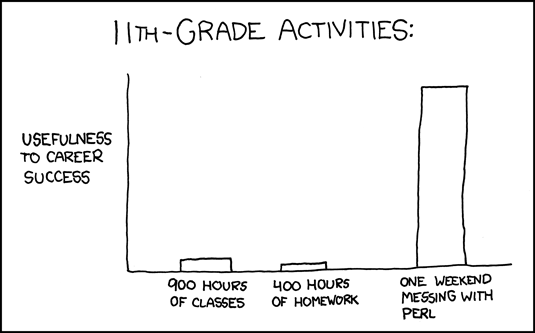Exactly this. Chances are you don't know what you want to do in life (or what you will actually do in life) at that young age. The purpose of schools is to lay a foundation of knowledge from which you can springboard into other career paths.The Maddest March Hare said:Everything will be important to someone. General schools are more about teaching you a little of everything so you find what applies most to you ready for the education in college and university that is based on your own choices of subject.
You might think history is useless to you, but it's going to be hugely important to anyone who's likely to become an archaeologist or paleontologist, or even a lawyer since the common law system is based on precedent, i.e. case history. You might think chemistry is useless, but it's going to prove fundamentally important to a student who goes onto a career where those skills are necessary.
School really isn't about preparing you for life. That stuff is achieved very early in education. I don't know exactly how it works in the USA, but, at least here, the last few years of school are about preparing you for higher education more than anything else.

